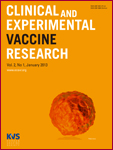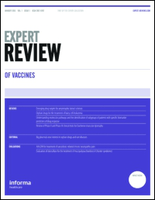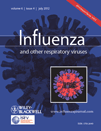
Clinical and Experimental Vaccine Research
Scope & Guideline
Advancing vaccine knowledge for a healthier tomorrow.
Introduction
Aims and Scopes
- Vaccine Development and Innovation:
The journal emphasizes research on the development of new vaccines, including novel formulations, delivery methods, and the use of cutting-edge technologies such as immunoinformatics and reverse vaccinology. - Immunogenicity and Efficacy Studies:
A significant focus on understanding the immunogenic response generated by various vaccines, including comparative studies of existing vaccines against emerging variants and pathogens. - Safety and Adverse Events Reporting:
The journal highlights the importance of documenting and analyzing adverse events associated with vaccinations, contributing to the understanding of vaccine safety profiles. - Public Health and Vaccine Acceptance:
Research addressing public perceptions, barriers to vaccination, and strategies to improve vaccine uptake in different populations, including insights into vaccine hesitancy. - Translational Research:
The journal supports studies that bridge laboratory findings with clinical applications, including the use of animal models for vaccine testing and the evaluation of vaccine performance in real-world settings.
Trending and Emerging
- COVID-19 Vaccine Research:
A significant increase in studies related to various aspects of COVID-19 vaccines, including efficacy, safety, and public acceptance, highlighting the urgent need for ongoing research in this area. - Personalized Vaccinology:
Emerging focus on personalized vaccine strategies, including the use of vaccinomics and adversomics to tailor vaccinations based on individual immune profiles and responses. - Immunoinformatics and Computational Approaches:
Growing interest in the application of computational methods for vaccine design, particularly in identifying epitopes and enhancing vaccine efficacy through in-silico analysis. - Vaccine Hesitancy and Acceptance Research:
Increasing attention on understanding and addressing vaccine hesitancy, with studies exploring the factors influencing public perception and acceptance of vaccines. - Novel Delivery Systems:
Research on innovative vaccine delivery methods, such as mucosal vaccines and nanoparticle-based systems, has gained traction, reflecting the pursuit of more effective and user-friendly vaccination strategies.
Declining or Waning
- Traditional Vaccine Platforms:
As the focus shifts towards innovative vaccine technologies such as mRNA and viral vector vaccines, research on traditional vaccine platforms (e.g., inactivated or live attenuated vaccines) has decreased. - Animal Vaccination Studies:
There is a noticeable reduction in studies focusing solely on veterinary vaccines or animal models, likely due to the increased emphasis on human vaccine research, particularly in the context of the COVID-19 pandemic. - Non-communicable Disease Vaccines:
Research related to vaccines targeting non-communicable diseases has diminished, as the journal has increasingly prioritized infectious disease vaccines, especially those related to COVID-19.
Similar Journals

npj Vaccines
Connecting Researchers for Global Health Impactnpj Vaccines, published by NATURE PORTFOLIO, is an esteemed Open Access journal that has been at the forefront of vaccination research since its inception in 2016. With an impressive impact factor and ranking in the top quartile (Q1) across several categories including Immunology, Infectious Diseases, and Pharmacology, this journal provides a crucial platform for the dissemination of high-quality research and innovative findings in the field of vaccine development. Based in the United Kingdom, and with its broad scope encompassing both fundamental and translational studies, npj Vaccines facilitates significant discourse among researchers, professionals, and students dedicated to immunization strategies and public health. The journal's commitment to Open Access ensures that vital knowledge is shared widely, promoting collaboration and advancement in vaccine science on a global scale. Scholars are encouraged to contribute to this essential field, as their findings may significantly impact the future of disease prevention and control.

Expert Review of Vaccines
Transforming Vaccine Development with Cutting-Edge Research.Expert Review of Vaccines, published by Taylor & Francis Ltd, is a pivotal open access journal that has established itself as a leading source of peer-reviewed articles focusing on vaccine research, development, and policy. With an impressive categorization in the top quartile (Q1) across various domains including Drug Discovery, Immunology, Molecular Medicine, and Pharmacology for 2023, this journal plays a crucial role in disseminating high-quality scientific findings that drive advances in the field. Located in the United Kingdom, it serves a global audience of researchers, healthcare professionals, and students seeking to stay abreast of cutting-edge developments in vaccination strategies and technologies. The journal’s Scopus ranks further attest to its excellence, boasting remarkable placements in Pharmacology and Drug Discovery, reflecting its impact and reach. Since transitioning to an open access format in 2023, the journal has enhanced accessibility to vital research, empowering a broader audience to contribute to and engage with the discourse surrounding vaccines. As the field of immunization continues to evolve, Expert Review of Vaccines remains a cornerstone for those committed to advancing knowledge and practice in this essential area of health science.

EPIDEMIOLOGIE MIKROBIOLOGIE IMUNOLOGIE
Illuminating the Complexities of Epidemiology and ImmunologyEPIDEMIOLOGIE MIKROBIOLOGIE IMUNOLOGIE is a prominent scholarly journal published by CESKA LEKARSKA SPOLECNOST J EV PURKYNE in the Czech Republic. With an ISSN of 1210-7913, this journal has been at the forefront of research since its inception in 1994, showcasing a rich repository of studies bridging the domains of epidemiology, microbiology, immunology, and infectious diseases, and reflecting advancements over three decades. Although it currently falls within the Q4 category in multiple fields including Epidemiology and Microbiology, the journal serves an essential role in disseminating knowledge and fostering discussions around public health challenges. The contributions made through its pages are vital for researchers, healthcare professionals, and students aiming to enhance their understanding of complex biomedical issues. While it does not offer open access, the journal remains a critical resource in its niches, inviting readers to engage with the latest findings and methodologies reshaping the landscape of health science.

Influenza and Other Respiratory Viruses
Exploring the frontiers of viral epidemiology.Influenza and Other Respiratory Viruses, published by WILEY, serves as a prominent peer-reviewed platform for the dissemination of research contributing to the understanding and management of respiratory viral infections. With an impressive impact factor and established as an Open Access journal since 2014, it ensures maximum visibility and accessibility of pivotal research findings in the realm of Epidemiology, Infectious Diseases, Public Health, and Pulmonary and Respiratory Medicine. Registered under the ISSN 1750-2640 and E-ISSN 1750-2659, the journal boasts Q1 rankings in four critical categories as of 2023, underscoring its significance within the scientific community. Researchers, professionals, and students can benefit from the convergence of knowledge that this journal facilitates from 2007 to 2024, fostering advancements in understanding viral pathogens and innovative treatment strategies that are increasingly vital to public health efforts globally.

Vaccine
Empowering researchers to bridge the gap in vaccine development.Vaccine is a premier academic journal published by Elsevier Science Ltd, dedicated to the field of vaccination and immunization research. With an impact factor and H-index that underscore its significance in the scientific community, this journal has consistently ranked in the Q1 category within various fields, including Immunology and Microbiology, Infectious Diseases, and Public Health. Since its inception in 1983, it has served as a vital resource for researchers, healthcare professionals, and students, providing rigorous peer-reviewed articles that explore important breakthroughs and innovations in vaccine development and deployment. Although it does not operate under an Open Access model, the journal maintains high visibility within academic circles, thanks to its strategic collaborations and widely respected editorial board. By bridging the gaps between laboratory discoveries and clinical applications, Vaccine plays a crucial role in advancing global health initiatives and addressing urgent public health challenges.

TRENDS IN IMMUNOLOGY
Shaping the Future of Immunology Through Comprehensive ReviewsTRENDS IN IMMUNOLOGY, published by CELL PRESS, stands as a premier source of insights and developments within the field of immunology. With an ISSN of 1471-4906 and E-ISSN of 1471-4981, this journal has established a strong reputation, evidenced by its prestigious status in Q1 quartiles for both Immunology and Allergy in 2023. It is ranked #13 out of 233 in the Scopus category of Medicine – Immunology and Allergy, and #16 out of 236 in Immunology and Microbiology, placing it within the top 94th and 93rd percentiles respectively. Since its inception in 1987, TRENDS IN IMMUNOLOGY has provided a critical platform for researchers, professionals, and students to access the latest advancements and integrative reviews in immunological research. The journal offers open access options, enhancing the accessibility of its high-impact content to a global audience. Researchers and practitioners rely on its pages not only for cutting-edge findings but also for comprehensive discussions that drive the future of immunology research.

AIMS Allergy and Immunology
Empowering Global Collaboration in Immunological ResearchAIMS Allergy and Immunology is a prestigious open access journal dedicated to advancing knowledge in the fields of allergy and immunology. Published by the American Institute of Mathematical Sciences (AIMS), this journal provides a vibrant platform for researchers, practitioners, and scholars to share groundbreaking findings and insights. Recognized for its commitment to disseminating high-quality research since its inception in 2017, AIMS Allergy and Immunology contributes significantly to the understanding of complex immunological mechanisms and allergic responses, thus playing a pivotal role in enhancing clinical practices and therapeutic strategies. With its ISSN 2575-615X, the journal aims to facilitate a robust exchange of ideas and promote collaboration within the scientific community. Researchers and practitioners are encouraged to access the latest studies and reviews, which are all freely available online, ensuring that vital information reaches a global audience without barriers. Together, we can tackle the challenges posed by allergies and immune disorders through rigorous scientific inquiry and innovation.

Immuno
Fostering Global Collaboration in Immune ResearchWelcome to Immuno, a pioneering open-access journal published by MDPI that serves as a key platform for the dissemination of innovative research in the fields of immunology, biochemistry, and genetics. Established in 2021, this journal has rapidly established itself within the academic community, currently ranking in the 53rd percentile in Medicine (miscellaneous) and 50th percentile in Biochemistry, Genetics, and Molecular Biology according to Scopus metrics. With a commitment to advancing our understanding of immune mechanisms and their applications in health and disease, Immuno is dedicated to publishing high-quality peer-reviewed articles that contribute valuable insights to both researchers and practitioners. Positioned in the heart of Switzerland, its global accessibility and diverse editorial board are a testament to its aim to promote knowledge exchange among scientists, practitioners, and students alike. Explore the latest discoveries and advancements in immunological research through Immuno, where your contributions help shape the future of this critical area of study.

Eurosurveillance
Connecting professionals to pivotal public health findings.Eurosurveillance is a prestigious journal dedicated to the field of epidemiology, public health, and infectious diseases, published by the European Centre for Disease Prevention and Control since 1996. With an impressive Q1 ranking across various categories, including Epidemiology and Public Health, it consistently stands at the forefront of research dissemination, making it an invaluable resource for researchers, professionals, and students alike. The journal boasts an outstanding reputation, as evidenced by its Scopus rankings, where it ranks in the top 1% to 3% in multiple relevant categories. As an Open Access publication, Eurosurveillance ensures that vital findings are freely accessible to a global audience, fostering collaboration and innovation in the fight against infectious diseases. With a dedicated reach from 2001 to 2024, the journal addresses contemporary challenges in public health and virology, reinforcing its significance in shaping policies and research initiatives across the world.

EUROPEAN JOURNAL OF IMMUNOLOGY
Bridging Research and Application in ImmunologyWelcome to the European Journal of Immunology, a premier peer-reviewed journal dedicated to advancing the field of immunology and allergy research. Established in 1971 and published by Wiley, this esteemed journal has been consistently ranked in the top quartile (Q1) across its categories, highlighting its significant impact within the scientific community. With an impressive Scopus ranking, the journal occupies the 64th position in Immunology and Allergy and the 74th in the broader sector of Immunology and Microbiology, demonstrating its vital role in driving innovation and knowledge in immunological studies. The European Journal of Immunology publishes high-quality original research, comprehensive reviews, and insightful commentary, making it an indispensable resource for researchers, healthcare professionals, and students dedicated to understanding the complexities of the immune system. Although not an open-access journal, it offers various subscription options to ensure that institutions and individuals can access pivotal research that shapes the future of immunology.